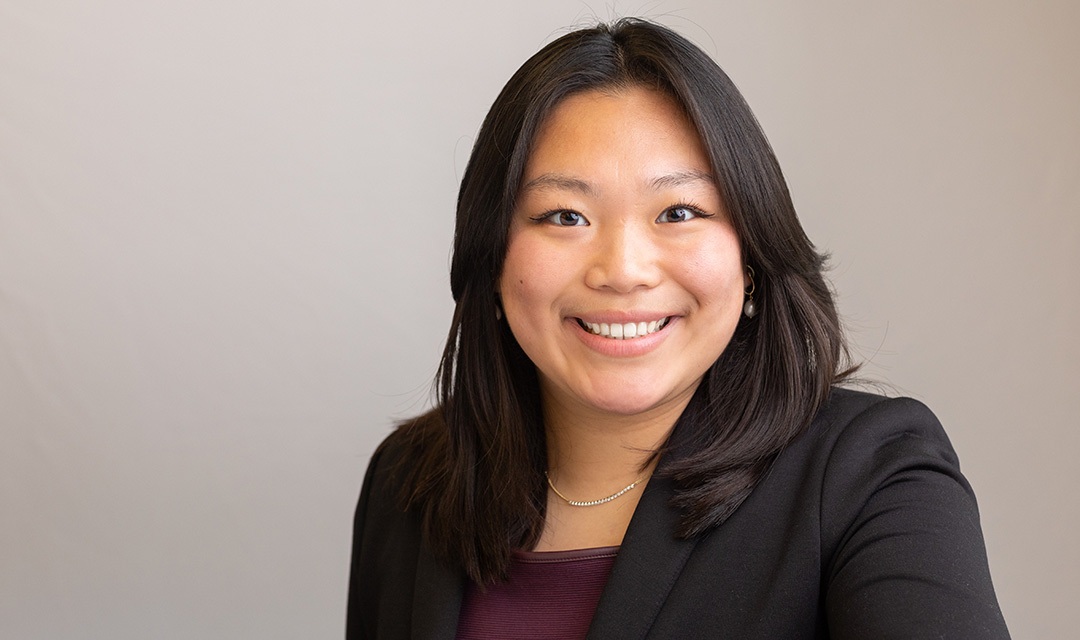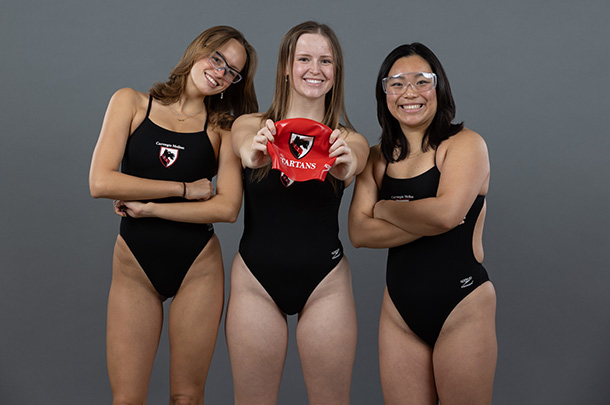Internship deepens team values
Lauren Smith
Oct 3, 2024

As a field service engineering intern, Krystal Xiao-Rao saw fundamental concepts she learned at Carnegie Mellon working in liquid chromatography instruments. "Seeing the system run samples, something connected," she says.
Xiao-Rao, a chemical engineering major, was drawn to the internship at Waters Corporation because it differed from internships in manufacturing, consumer goods, and food science. It also gave her the opportunity to spend the summer at home, with her family's new puppy.
Waters is a leading provider of lab equipment, supplies, and software. Shadowing field service engineers, Xiao-Rao visited client sites to perform preventive maintenance on Waters instruments. For other clients, she helped to relocate their equipment to new facilities. She also responded to repair tickets submitted when an instrument wasn't working. At the client site, Xiao-Rao and a field service engineer would run a series of preliminary diagnostics to narrow down potential sources of the error. They would then swap out parts one at a time, testing after each swap to see if they had resolved the error.
Xiao-Rao found this trouble-shooting to be the most interesting part of her internship. "I got to talk with the clients about how they use the instruments in their research projects, the pressures at which they normally run out, and the unusual peaks in their chromatograms," she says. The Waters clients that Xiao-Rao worked with were primarily pharmaceutical companies. She also visited a few clinical sites.
What I've taken away from my internship at Waters is the environment and the team atmosphere that I want in my career.
Krystal Xiao-Rao, Undergraduate student, Chemical Engineering
Xiao-Rao was selected for the internship through the new Waters University Pathway Program, which also includes a one-year scholarship. "Waters has been a great partner with CMU over the past few years, engaging on technical topics such as an Innovations in Materials Characterization Technology Summit held in 2023, nurturing initiatives that are important to CMU like the National Organization of Black Chemists and Chemical Engineers, and supporting career opportunities through this internship program. We are very excited to continue working with Waters," says Edward Dunlea, senior director of corporate and government relations in Mellon College of Science.
The program also provides mentoring, and Xiao-Rao has identified two Waters field service engineers that she connected with over the summer. She's already finding it useful to hear about how they got into the industry and is reassured to have them in her network for school and career advice.
When she graduates, Xiao-Rao plans to work in industry. "What I've taken away from my internship at Waters is the environment and the team atmosphere that I want to look for in my career," she says.
Xiao-Rao has also learned from supportive teams on campus. She has been a mentee and a mentor in ChemE Pals, a program run by the American Institute of Chemical Engineers (AIChE) student chapter at CMU. She says those friendships are one example of how ChemE students support each other not only within their grade but also across grades. Xiao-Rao is also a peer tutor for chemical engineering classes.
Her first family on campus, though, was the varsity swimming and diving team. Student-athletes form a special connection, she says, because no one else understands what it's like to be so committed to a sport.

Source: Krystal Xiao-Rao
Krystal Xiao-Rao (right) with teammates and fellow chemical engineering majors Catherine Kress and Kyndall Tatum.
For Xiao-Rao, swimming is her time away from academics. "It's two to four hours a day I dedicate to not thinking about anything but swimming," she says.
Through the team, Xiao-Rao has met students from different colleges at CMU, and they've helped her navigate from one major to another.
Inspired by her pediatrician, Xiao-Rao came to CMU as a biological sciences major to prepare for medical school. In her first-semester biology class, she found herself missing math. After talking with a swim teammate in the College of Engineering, Xiao-Rao enrolled in the Introduction to Biomedical Engineering class for her second semester. It piqued her interest, and she noticed how well chemical engineering paired with biomedical engineering. She also noticed that many of the core courses she had already taken for her biological sciences major were compatible with chemical engineering requirements, allowing her to stay on track for graduation.
She spent the summer between her first and second years debating whether to change majors. Xiao-Rao no longer saw herself going to medical school, and the jobs available with an engineering bachelor's degree appealed to her. She took the leap and transferred to the chemical engineering department.
Xiao-Rao says she's never been happier academically. "I like the math component. I like applying fundamental concepts and equations to solve problems. But what has drawn me to ChemE is how close-knit the department is," she says.
